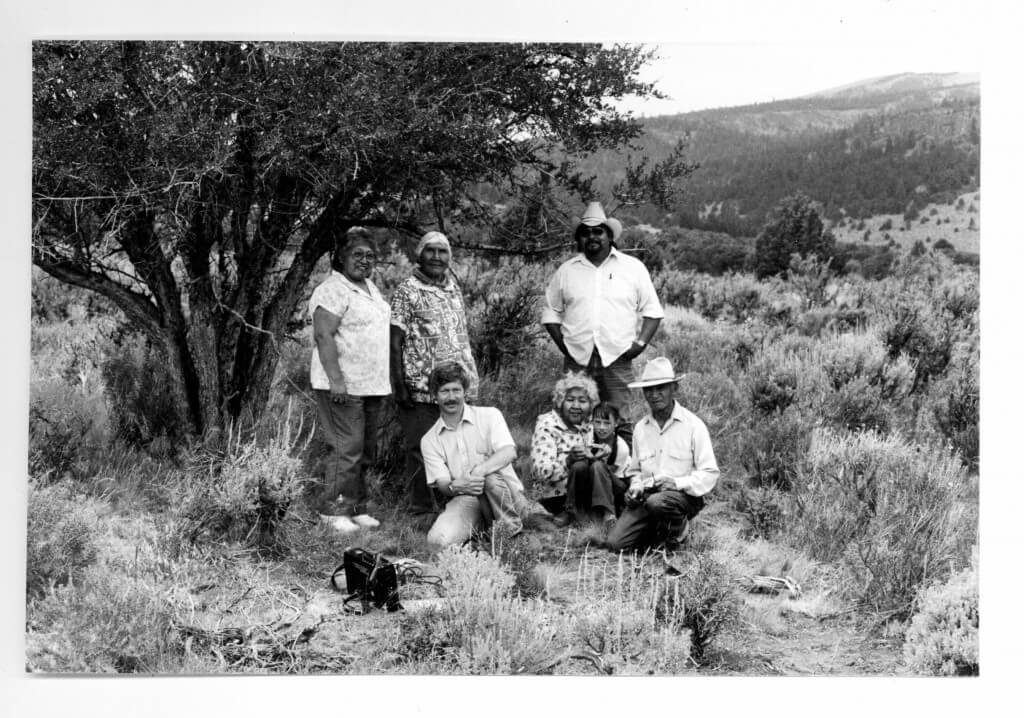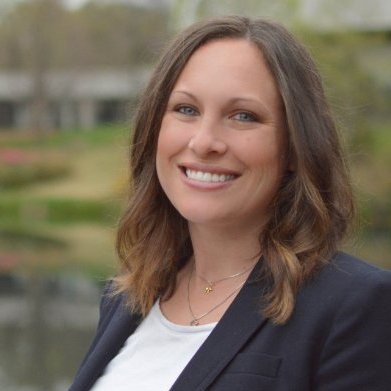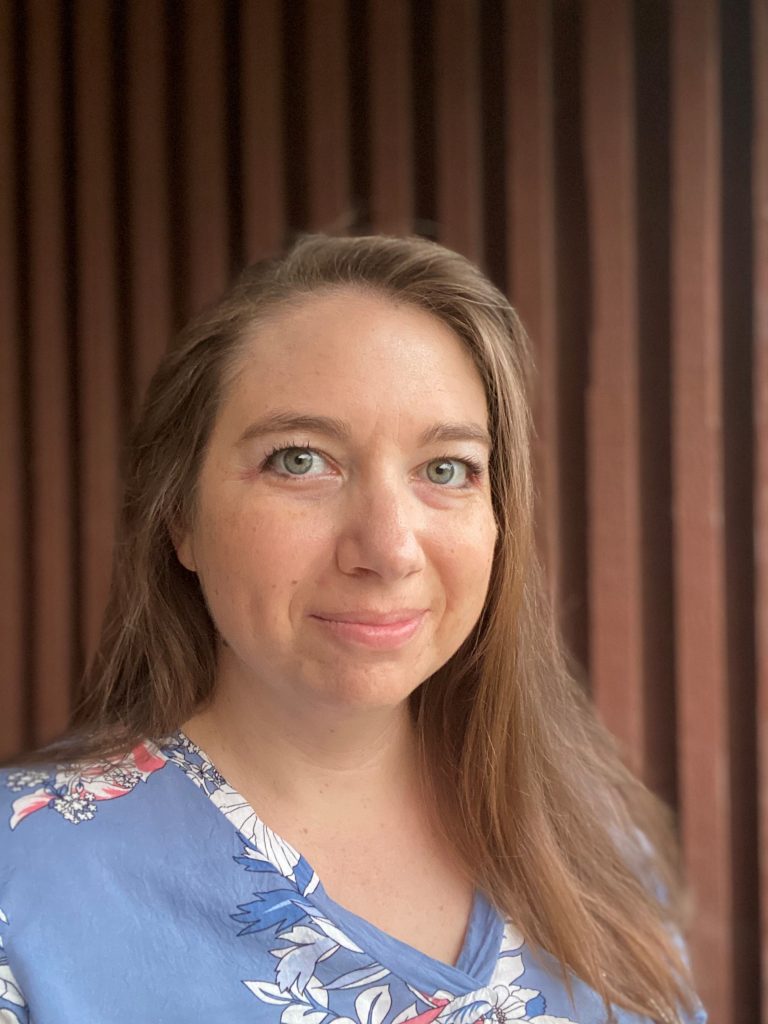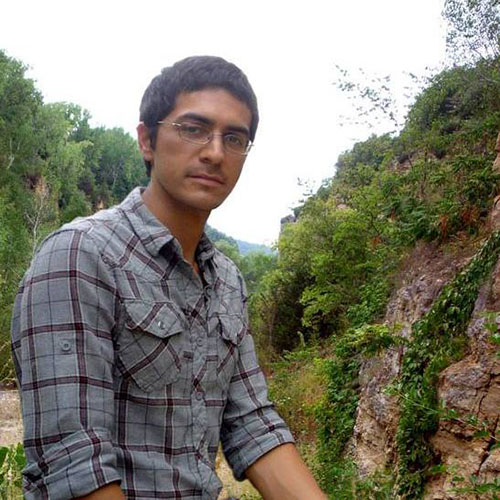National Association for the Practice of Anthropology
NAPA Career Profiles: Robert Winthrop
Robert Winthrop is Senior Social Scientist at the Department of the Interior’s Bureau of Land Management (BLM) in Washington, DC, where he leads the Socioeconomics Program.
- Byadmin
- On
- 2 Comments

Disclaimer: The views expressed are the author’s, and do not represent the policies of the U.S. Department of the Interior.
 Before his arrival at the Bureau of Land Management (BLM) in 2002, Winthrop operated an anthropological consulting firm in the Pacific Northwest. His areas of expertise include social impact assessment, environmental justice, natural resource policy, cultural rights, and the human dimensions of climate change.
Before his arrival at the Bureau of Land Management (BLM) in 2002, Winthrop operated an anthropological consulting firm in the Pacific Northwest. His areas of expertise include social impact assessment, environmental justice, natural resource policy, cultural rights, and the human dimensions of climate change.
“At the BLM I lead a team that applies the social sciences to practical problems of land and resource management from northern Alaska to the Mexican border. For the prior twenty years with two partners I ran a small consulting practice, Cultural Solutions. My work focused on social impact assessment and dispute resolution where American Indian rights and values were affected by natural resource development.
In analytic terms, the core problems I’ve worked on in these two phases of my career are much the same: identifying the human context and consequences of proposed environmental change – dams, oil and gas development, mining, forestry projects, but also wilderness designation, wildlife conservation, and recreation planning. From the organizational side, the two experiences have been very different. At Cultural Solutions I ran a small business, with a research assistant and at most a handful of project staff. At the BLM we have a team of about 15 economists and other social scientists across the United States, within an organization of over 10,000 employees.
Incidentally, professional has always seemed a more appropriate adjective than practicing anthropologist. ‘Practicing’ sounds like a term chosen by academics to keep the rest of us, whose base is outside the universities, in our places.”
Winthrop’s decision to pursue a career in professional anthropology stems from his interest in addressing and resolving real world issues.
“In terms of the conventional subdisciplines of anthropology, I’m considered an environmental anthropologist of the professional rather than academic variety, though my work and interests are broader than that label suggests. I’ve never been motivated toward an academic career. I’m attracted by practical problems and the opportunity to help solve them. Both Cultural Solutions and the Bureau of Land Management have provided that opportunity.
At Cultural Solutions what I enjoyed most was the very concrete and practical nature of the work. This meant the challenge of using ethnography and other research skills to provide an account of a situation (typically a resource conflict) that was intelligible and credible to various parties confronting one another across a cultural divide. The best outcome was that this work helped enlarge the decision space, so that the parties could find an acceptable way forward. That was not always feasible. I also enjoyed the independence of running my own business.
At the Bureau of Land Management I enjoy the intellectual and practical challenge of working on a very wide and changing set of issues. The BLM manages the largest suite of resources in the federal government: 245 million acres of land (mostly in the west) and 700 million acres of subsurface mineral estate (providing oil, gas, coal, uranium, and other commodities). I appreciate the interdisciplinary nature of the work, and the opportunity to collaborate with a talented set of colleagues from many disciplines. Sometimes I appreciate the very fast pace – at other times it feels overwhelming. Some of the topics my colleagues and I have worked on recently include the social cost of carbon (for climate change), the costs and benefits of wildlife conservation, practical approaches for assessing the effects of proposed projects on ecosystem services, techniques for mapping social values, strategies for integrating environmental justice considerations in the agency’s decisions, and the design of a course on social impact analysis.”
Describing the diversity of his work experience, Winthrop highlights anthropological skills as well as his experience as small business owner, volunteer and interdisciplinary professional.
“The consulting phase of my career in part reflected strong interests in communities as social systems and the role religious traditions can play in shaping their adaptation to changing circumstances – the theme of my dissertation research. Beyond that and standard ethnographic skills my consulting work in large part involved learning-by-doing. This meant not only learning how to work in the rather polarized context of American Indian environmental rights claims, but also learning how to market my services, keep double-entry financial accounts, meet the payroll, and generally engage in the joys known to small business owners everywhere.
Don’t discount the value of volunteer work. Alongside my consulting I gained a great deal of practical experience by serving for 11 years in Oregon local government, on a planning commission, a city council, and a regional council of governments. I also pursued an interest in public policy on a broader scale. For five years I wrote the “The Real World” column in Practicing Anthropology, to showcase good examples of anthropologists intervening effectively in the development of public policy, national or international.
In 2000 a new job opportunity for my wife prompted us to move to the East Coast. For me this meant an opportunity to acquire new skills and take another approach to the world of work. My B.A. (from U.C. Berkeley) and my M.A. and Ph.D. (from the University of Minnesota) are all in cultural anthropology. I felt in need of broader training, and returned to graduate school (at age 50) to earn an interdisciplinary master’s degree at George Washington University. This provided a quasi-sabbatical in which to learn something of economics, political science, and business.
The federal government phase of my career (12 years and counting) certainly has drawn heavily on my previous life as a consultant. In applying for my current position experience working with tribes was an asset, as was the concurrent experience in local government. The recent master’s degree, particularly the exposure to economics, has been extremely helpful in my work, and I assume was a positive factor in selection to lead a program of many social science disciplines.”
In his current position, Winthrop’s professional duties involve a balance of strengthening the agency’s social science capabilities and responding to specific policy challenges. That work has also led to requests to serve on advisory panels outside the agency.
“Anthropology is one of several social science disciplines my colleagues and I use to describe the human implications of the BLM’s land and resource decisions. Unlike my work through Cultural Solutions, at the Bureau of Land Management I don’t conduct applied research myself. I review analyses, commission pilot studies to identify promising techniques and tools, advise on new issues, and develop guidance and training on the use of social science methods.
There are also interesting opportunities outside of the regular agency work to provide an anthropological perspective. For example, I serve on a committee for the Global Change Research Program charged with strengthening the role of the social sciences in the federal government’s climate change research, policy, and action. One objective I’ve promoted there is for agencies to develop more consistent and effective ways of incorporating local and indigenous knowledge into decision-making regarding adaptation to climate change.”
Although building his career involved a certain degree of planning, Winthrop notes that he was able to identify and pursue opportunities that presented themselves and advance from there.
“President Eisenhower said that plans are useless but planning is everything. To get anywhere one needs to identify some strategic goals, to provide some consistent basis for responding to shifting situations and opportunities. Many people do develop a plan for moving through each stage of their careers. My experience has been more like crossing a stream by jumping from one stone to the next. From the bank I could only see the first few stepping stones; I had to assume that once in mid-stream the next stones would be visible. So far that has worked reasonably well.”
For anthropologists interested in pursuing professional work, particularly at the Federal level, Winthrop provides the following advice:
“My first suggestion is to find some mentors who have worked as anthropologists outside of academia.
The search for professional jobs in the federal government can be quite competitive. The last position filled in my own socioeconomics program (in 2014) received over 150 applications. For M.A.- and Ph.D.-level anthropologists seeking professional careers in the federal government, here are some suggestions.
- Don’t look solely for positions earmarked for cultural anthropologists. Of the last seven colleagues hired in our socioeconomics program, two are cultural anthropologists, yet in both cases the recruitment was aimed more broadly at social scientists of any discipline. The only position in my agency specifically designated for a cultural anthropologist is focused on managing subsistence resources used by Iñupiat communities on Alaska’s North Slope.
- In any interview for a job, focus on how you can help a potential employer solve a problem. It’s not about you, it’s about the work.
- I have led or participated in quite a few recruitments for BLM’s socioeconomics program. The main qualities I look for in potential colleagues are: a solid professional toolkit (whether this is in resource economics or human geography), professional experience in several research and work settings, excellent analytic and communication skills, engagement in the mission of the agency and its socioeconomics program, and a driving interest in solving practical problems and providing useful information. Training in a second relevant discipline, such as ecology or public policy, is a strong plus. If you can’t be enthusiastic about the organization, don’t apply for the job.
- Apply to fellowship programs intended to get scientists into federal careers. The Science & Technology Fellowship program sponsored by the American Association for the Advancement of Science (AAAS) is highly competitive, but a very good way to find rewarding post-doctoral placements in federal agencies (http://www.aaas.org/program/science-technology-policy-fellowships). Selection for the federal government’s own Presidential Management Fellows program (apply in graduate school) can also provide a powerful career boost (http://www.pmf.gov/). Most if not all federal departments also have their own professional intake programs.
Those interested in environmental anthropology in particular may want to read the chapter ‘Environment and Resources’ in A Handbook of Practicing Anthropology (Riall Nolan, editor, Wiley-Blackwell, 2013), where I provide additional advice and describe the career paths of seven anthropologists.”
In responding to what changes he might have made if he were to start his career over again, Winthrop comments, “lots, but I wouldn’t have changed the fundamental direction of my career.”
“If I had a do-over for the university years I would study a broader range of disciplines, rather than focusing so heavily on anthropology. But cultural anthropology would still be at the heart of my professional preparation and professional identity.”
For more information about Rob Winthrop, you can view his CV here: http://anth.umd.edu/facultyprofile/Winthrop/Robert or contact him directly at rob.winthrop1@comcast.net.
For more information on how the social sciences are used in a federal land management agency, see BLM’s Socioeconomics Strategic Plan.
These brief interviews of some key anthropological practitioners appeared on the NAPA LinkedIn pages (2013); subsequent interviews were posted on the NAPA blog (2014). They are listed here by the most recent interviews. The interview series was produced by NAPA Communications Committee members Kristin Keller and Nicole Conand.




Hi Sushil, you can contact Robert directly at rob.winthrop1@comcast.net.
i am impressed from his work,i am from nepal now i am living in newyork. my background is anthropology, i would like to email him how can i contact him.